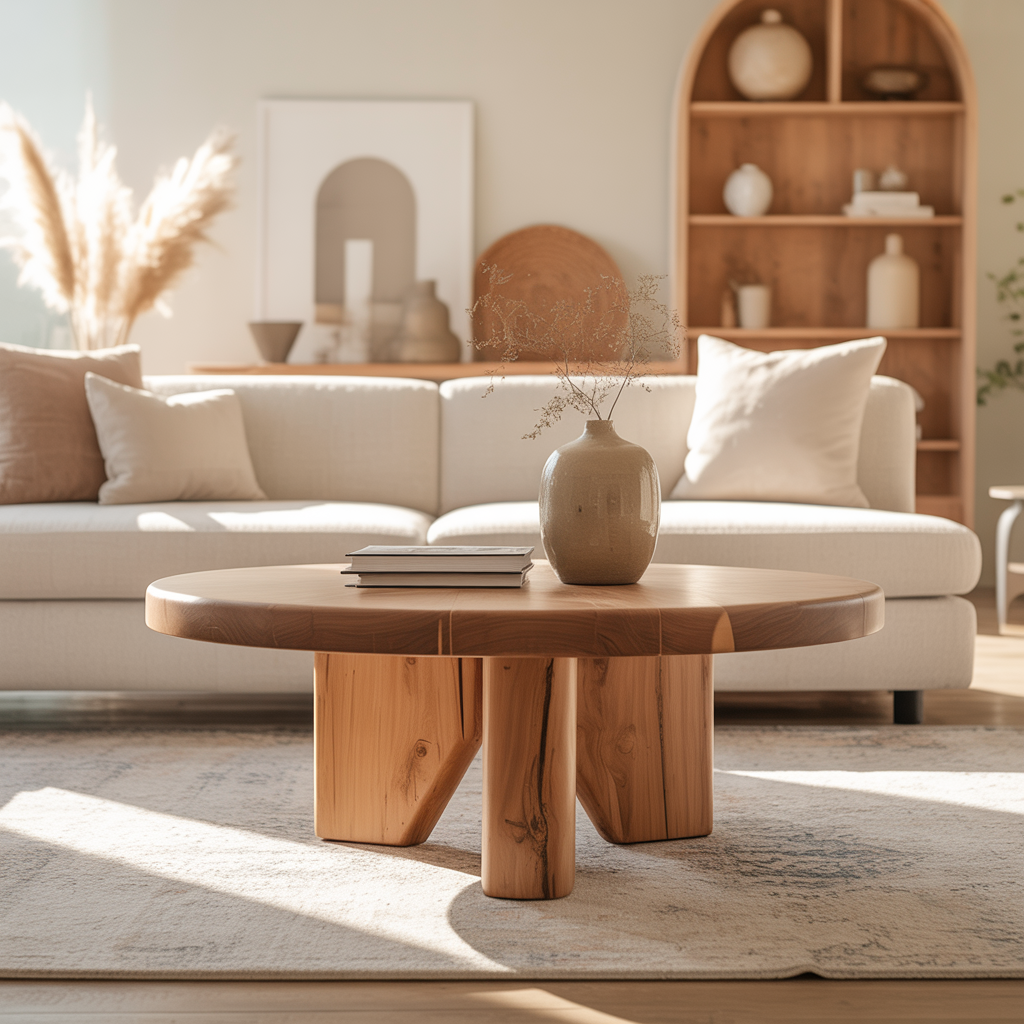The Complete Guide To Coffee Tables: Ideas & Styling For Every Living Room
Coffee tables are the centerpiece of every living room — they anchor the space, add balance, and offer both style and function. Whether you’re creating a cozy gathering area or a modern minimalist retreat, choosing and styling the right coffee table makes all the difference. This complete guide covers everything from shapes and materials to proportions, pairing, and décor ideas.
Why Coffee Tables Are Essential
The coffee table serves as the visual and functional heart of the room. It ties together your sofa, chairs, and décor while providing a practical surface for daily use. From holding books and candles to displaying flowers or trays, it adds warmth and organization to your layout. To explore design inspiration and layout tips, visit Select Coffee Tables Ideas & Styling or browse our Coffee Tables collection.
Choosing the Right Shape & Size
Shape and proportion determine how your coffee table fits into the room. Round and oval tables soften sharp edges and improve flow in compact spaces,
while rectangular and square tables suit larger seating groups. Balance is key — your table should complement your furniture layout without crowding it.
- Length: Aim for two-thirds the length of your sofa.
- Height: The tabletop should sit within 1–2 inches of your sofa’s seat height.
- Spacing: Leave 18 inches between the table and seating for easy movement.
For perfect proportions and pairing tips, see our guide Accent Chairs Inspiration & Style.
Popular Coffee Table Styles
Modern Minimalist
Clean lines and neutral colors make minimalist coffee tables ideal for contemporary homes. Pair them with Accent Chairs and slim Side Tables to maintain open visual flow.
Rustic & Natural
Crafted from solid wood with visible grain, rustic coffee tables bring warmth and authenticity. Combine them with natural textures like jute rugs or soft linen throws for relaxed charm.
Mid-Century Modern
Distinctive tapered legs and organic forms add retro sophistication. They work beautifully with low-profile seating and earthy tones.
Storage & Lift-Top Designs
Perfect for compact spaces, these tables combine style and practicality. Store remotes, books, or blankets to keep the room tidy without sacrificing design.
Pairing Coffee Tables With Other Furniture
A well-designed living room depends on the relationship between your coffee table and surrounding furniture. Match materials and finishes with complementary pieces for harmony, or contrast textures for depth.
- With Accent Chairs: Place chairs diagonally to the table to create conversational flow. See arrangement ideas in Accent Chairs Inspiration & Style.
- With End & Side Tables: Keep tabletop heights consistent for balance. Explore styling examples in End & Side Tables Inspiration.
- With Benches: Add a bench opposite your sofa for flexible seating and visual symmetry. Learn more in Select Benches Style & Function.
Styling Ideas for Every Living Room
Styling your coffee table is where form meets creativity. The right arrangement of décor can make your living room feel polished and personal. Use the “rule of thirds” — divide the surface visually into three sections and style each with intention.
- Stack books and magazines to add height and personality.
- Use trays to group items neatly and introduce texture.
- Include greenery or florals to bring life to the center of the room.
- Mix materials like glass, metal, and wood for depth and contrast.
For layering techniques, visit our inspiration post Coffee Tables Ideas & Styling or explore natural combinations with Benches and Side Tables.
Layout Examples & Proportion Tips
Open-Plan Living
Use a large rectangular coffee table to anchor the sofa and separate living from dining zones. Add a pair of Accent Chairs to complete the setup.
Compact Apartments
Choose a round or nesting table set to maximize space and flexibility. Pair with slim benches or side tables for extra function.
Family Rooms
Opt for soft-edged designs and storage options to keep clutter away. Sturdy materials ensure durability for everyday use.
Quick Buying Checklist
- Measure sofa height and room size before choosing shape or size.
- Leave 18″ of space between the table and seating for movement.
- Ensure the table height aligns with your seating for comfort.
- Coordinate finishes with other wood or metal accents.
- Plan a balance of open space and decorative elements on top.

